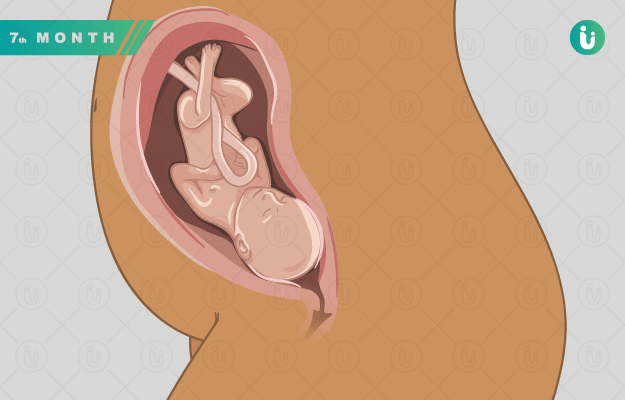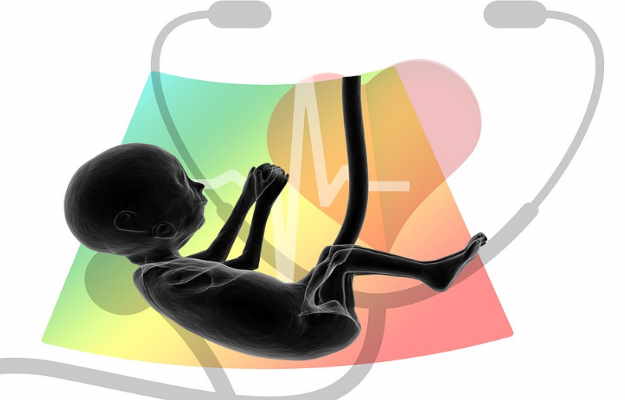Normal body temperature is around 98.6 degrees Fahrenheit, although it may vary among individuals. Generally, a body temperature higher than this is considered to be a fever, which is basically a defence mechanism of the body and is reflective of your body’s ability to fight an infection or fend off an illness.
Fever during pregnancy may be normal for once. After all, you can’t control all the microorganisms you come in contact with every day. But, a frequent fever occurring more often than once may be a sign of an underlying problem.
It is imperative that you take any rise in temperature during pregnancy seriously and visit your doctor at the earliest. This is especially important if your temperature is higher than 100 degrees or you experience a fever more frequently than once in a trimester. The duration of fever depends on the type of causative agent, but, any fever lasting more than 2 to 3 days during pregnancy must be reported to a doctor. This is because recurrent or high fever during pregnancy increases the risk of birth defects in the baby.
It is also recommended to take sufficient preventive measures so that you do not get a fever in the first place. Vaccination, self-care and early treatment will ensure that.
This article will discuss the causes, symptoms, prevention and treatment of fever during pregnancy along with the effects of maternal fever on the foetus.
- Causes of fever during pregnancy - Fever during pregnancy causes in Hindi
- Symptoms of fever during pregnancy
- Effects of fever during pregnancy on the foetus
- Prevention of fever during pregnancy
- Diagnosis of fever during pregnancy
- Fever in pregnancy treatment
- Self-care tips for fever during pregnancy
Causes of fever during pregnancy - Fever during pregnancy causes in Hindi
Fever during pregnancy can occur due to a number of causes owing to different infectious agents. Studies have found that fever exerts an inhibitory effect on the growth of infectious bacteria and replication of viral causative agents within the body. So, it is not so that fever is always a wrath that you have to face. It is rather a defence mechanism. However, this does not imply that fever is normal and you should comfortably sit and let it subside. It is important to know the cause of fever to rule out any serious illnesses or infections during pregnancy. Your doctor will outline these causes based on your symptoms and certain diagnostic tests. Following are the causes of fever during pregnancy:
- Urinary tract infection
- Appendicitis
- Cholecystitis
- Malaria
- Dengue
- Hepatitis
- Rubella
- Typhoid fever
- Cholera
- Syphilis
- Pyelonephritis
- Tuberculosis
- Scrub typhus
- Staphylococcus aureus septicemia
- Leptospirosis
- Japanese Encephalitis Virus infection
- Flu or influenza
Other than these infections, there is also a chance of multiple infections during pregnancy as seen in some patients. Inadvertently, the symptoms will be more severe in this case.
A recent study reported the cases of dual infections in mothers most commonly comprising of dengue fever with scrub typhus or pyelonephritis. Even a combination of the three was noted in a few cases.
Acknowledgement of causes and diagnosis of underlying factors is important to manage fever during pregnancy lest harm is caused to the foetus.
Symptoms of fever during pregnancy
Quite obviously, a fever is determined by a rise in body temperature. But, you are not always sitting with a thermometer to measure that. So, it is important that you understand the symptoms of fever during pregnancy. Pregnant women often have more severe and slightly different symptoms than others, which makes it a bigger concern. Following are the symptoms of fever during pregnancy which suggest that you must see your doctor:
These are the normal symptoms of fever during pregnancy, which are seen due to a mild infection. In case fever is due to severe underlying causes as mentioned above, it will manifest the classic signs of that infection or disease. Let’s have a look at these:
- Severe abdominal pain will be noted in case of appendicitis or cholecystitis.
- Pain or burning sensation while urinating and an increased urge to micturate will be experienced in case of urinary tract infection.
- Chills, night sweating and muscular pain in case of dengue fever.
- In hepatitis, the symptoms will vary according to the type of infection, but will most commonly include loss of appetite, nausea and yellowish discolouration of the urine.
- Malaise and redness of the eyes will be most commonly seen in rubella.
- Fatigue, chills and malaise will be experienced in case of typhoid fever.
- Nausea, vomiting and dehydration due to the former will accompany fever in case of cholera.
- Syphilis will present its classic signs including genital rash, ulcers and an increased vaginal discharge along with ulcers and itching on the areas of the skin.
- Pyelonephritis will exhibit symptoms like pain during micturition and a frequent urge to urinate wherein the urine may be cloudy or may have a foul smell. It quite commonly occurs along with a urinary tract infection. Sometimes, blood may also be seen in the urine.
- A chronic cough and a thickened phlegm will most commonly be noted in case of a tuberculosis infection along with other respiratory manifestations or the presence of blood along with the sputum.
- A characteristic red sore or a lesion will be seen at the site of insect bite in case of scrub typhus.
- Staphylococcus aureus septicemia is a very serious, potentially life-threatening condition exhibiting severe symptoms like difficulty in breathing, reduced consciousness, tachypnea (rapid breathing), mental confusion and discolouration of the skin. This is rare during pregnancy but requires immediate medical attention.
- Joint pain and muscle ache will be experienced in case of a Leptospirosis infection.
- Headache and nausea are noted in Japanese Encephalitis Virus infection.
- Severe cold, cough, loss of appetite, muscular pain, runny nose, congestion and fatigue will be most commonly experienced if fever is due to influenza or flu virus.
You must acknowledge that the symptoms of even serious infections are seemingly less severe like muscular (or other) pain, common cold and cough. This points towards the inevitability of seeing a doctor if you experience even mild symptoms during pregnancy when accompanied by fever.
Also, nausea, vomiting and fatigue which are commonly experienced during the first trimester of pregnancy must not be ignored if experienced severely.
Effects of fever during pregnancy on the foetus
A high fever during pregnancy indubitably has detrimental effects on the foetus and can lead to serious birth defects. This is why it is important for you to prevent a fever and avoid being sick during pregnancy.
Studies have shown that women who experience a cough or a cold without a fever during pregnancy are less likely to be at a risk of these birth defects.
While a fever can be harmful to the foetus during any trimester, the potency of this harm is quite high during the first trimester of pregnancy. Studies have found that the neural tube defects are the most common among women who reported having a fever during early stages of pregnancy. Following are the effects of fever during pregnancy on the foetus:
- Neural tube defects
- Defects in the heart
- Developmental delays
- Autism and autism spectrum disorders
When due to influenza, a fever can cause:
- Cleft lip and/or plate
- Spina bifida
- Limb reduction defects
- Spinal stenosis
- Renal hypoplasia or agenesis
Other than these effects, a recent study conducted on pregnant women found that fever during pregnancy due to serious underlying causes like dengue, malaria, tuberculosis, encephalitis and other infections listed above has damaging effects on the mother as well and can even lead to maternal death. Further, it increases the risk of low birth weight, preterm birth, miscarriage, stillbirth or a congenital defect. Some even have the risk of vertical transmission causing infections in the baby. Hepatitis B is most commonly transferred through this route.
Several studies conclude that a high fever during pregnancy is a certain causative factor of neural tube defects in the newborn if experienced during the first trimester. This necessitates taking special care of your health during early pregnancy.
Prevention of fever during pregnancy
Fever can be prevented during pregnancy by taking good care of your health. Washing your hands before eating and keeping your surroundings clean will help to avoid an infection. Use of a good antibacterial soap will prevent the colonisation of bacteria on the skin, thereby preventing infection; and maintaining proper sanitation will ensure the avoidance of urinary tract infection.
It is also important to take care of your sexual health during pregnancy. Just because you are pregnant, does not mean that you cannot acquire STDs. Get yourself and your partner tested and do not have unprotected sex with an individual of unknown sexual history as STDs can have damaging effects on foetal health.
Take special care of yourself while travelling by making the use of protective masks to prevent inhalation of infectious agents. Similarly, be cautious about your food sources and avoid eating out in places with compromised hygiene standards. Make sure to maintain distance from an affected individual as well.
Other than this, it is important that you take prescribed medications and supplements on time during pregnancy. Not taking folic acid supplements during early pregnancy puts your baby at a greater risk of neural tube defects, which will be manifested in the form of a fever.
Diagnosis of fever during pregnancy
While fever can simply be diagnosed on the basis of temperature readings with the help of a thermometer and the presence of symptoms, blood tests need to be conducted to determine or rule out an infection due to any other agents.
Culture and urine examination may also be conducted depending on the symptoms to form a confirmatory diagnosis.
Fever in pregnancy treatment
As you may by now understand, it is very important to treat fever during pregnancy and avoid its recurrence. So, it is crucial to visit a doctor and specify all your symptoms, which would help in forming a diagnosis.
Your doctor would prescribe antipyretics like paracetamol to control fever. If you have pain, NSAIDs or some other analgesics will be prescribed. Broad spectrum or specific antibiotics will be given in case of an infection. If you happen to have a lesion or rash, over-the-counter creams, lotions and other topical agents will be recommended. Other than this, 400 mcg of folic acid will most commonly be indicated to prevent neural tube defects in the newborn.
Further, you will be advised to take rest and increase fluid consumption while bringing down exercise and physical activity.
Self-care tips for fever during pregnancy
It is important to take your medications and supplements on time and follow your doctor’s advice along with preventive measures. But, there are certain self-care precautions you need to take in order to manage a fever. These will help in subsiding your temperature and reducing the risk of harm to the baby. These measures are:
- Remove excessive clothing or blankets. Make use of lightweight clothing and ensure that it is comfortable.
- Your room environment must be neither too warm not too cold. In hot seasons, the use of a fan will help.
- Do not make use of cold ice packs since they will help to cool down the skin in a local area but will eventually lead to worsening of fever due to exposure to intense cold.
- Use a lukewarm sponge or take a lukewarm shower to help ease the symptoms of fever. This is particularly helpful after taking medicines.
- Ensure taking your medicines every 6 to 8 hours to regulate your body’s thermostat.
- Consume plenty of fluids. Have juices since they are rich in vitamin C and help in improving immunity. Having soups also helps to ease fever symptoms and soothe your throat.
- It is recommended to eat light food and not force eat yourself if you do not feel hungry.
- Massages can probably help with localised pain or muscle ache. It is not advisable to make the use of a hot bag.
- Get yourself vaccinated before or during your pregnancy as indicated by your doctor, especially against flu.
References
- MedlinePlus Medical Encyclopedia: US National Library of Medicine; Fever
- A Sahib Mehdi El-Radhi. Fever management: Evidence vs current practice. 2012 Dec 8; 1(4): 29–33. PMID: 25254165
- Center for Disease Control and Prevention [internet], Atlanta (GA): US Department of Health and Human Services; Maternal Fever During Early Pregnancy May Be Linked to Birth Defects
- Ousseny Zerbo, Ana-Maria Iosif, Cheryl Walker, Sally Ozonoff, Robin L. Hansen, and Irva Hertz-Picciotto. Is Maternal Influenza or Fever During Pregnancy Associated with Autism or Developmental Delays? Results from the CHARGE (CHildhood Autism Risks from Genetics and Environment) Study. J Autism Dev Disord. 2013 Jan; 43(1): 25–33.PMID: 22562209
- Centre for Health Informatics. [Internet]. National Institute of Health and Family Welfare Maternal Cold or Flu with Fever During Pregnancy May Be Linked to Birth Defects
- Chansamouth V, Thammasack S, Phetsouvanh R, Keoluangkot V, Moore CE, Blacksell SD, Castonguay-Vanier J, Dubot-Pérès A, Tangkhabuanbutra J, Tongyoo N, Souphaphonh P, Sengvilaipaseuth O, Vongsouvath M, Phommasone K, Sengdethka D, Seurbsanith A, Craig SB, He
- Chambers CD, Johnson KA, Dick LM, Felix RJ, Jones KL.Maternal fever and birth outcome: a prospective study. 1998 Dec;58(6):251-7.PMID: 9894674
- MedlinePlus Medical Encyclopedia: US National Library of Medicine; Fever
- Center for Disease Control and Prevention [internet], Atlanta (GA): US Department of Health and Human Services; Pregnant Women & Influenza (Flu)










































